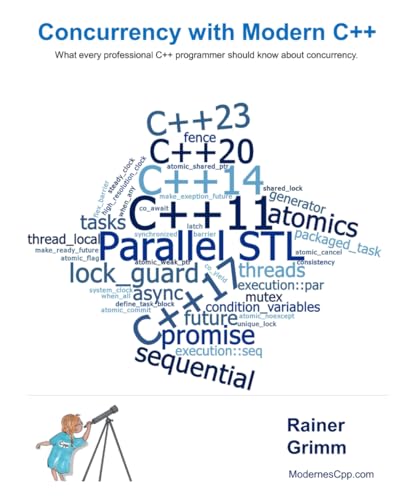

Most ebook files are in PDF format, so you can easily read them using various software such as Foxit Reader or directly on the Google Chrome browser.
Some ebook files are released by publishers in other formats such as .awz, .mobi, .epub, .fb2, etc. You may need to install specific software to read these formats on mobile/PC, such as Calibre.
Please read the tutorial at this link: https://ebookbell.com/faq
We offer FREE conversion to the popular formats you request; however, this may take some time. Therefore, right after payment, please email us, and we will try to provide the service as quickly as possible.
For some exceptional file formats or broken links (if any), please refrain from opening any disputes. Instead, email us first, and we will try to assist within a maximum of 6 hours.
EbookBell Team

5.0
78 reviewsC++11 and C++14 have the basic building blocks for creating concurrent or parallel programs.
With C++17, we got the parallel algorithms of the Standard Template Library (STL). That means most of the algorithms of the STL can be executed sequentially, in parallel, or vectorized.
The concurrency story in C++ goes on. With C++20, we got coroutines, atomic smart pointers, semaphores, latches, and barriers.
C++23 supports the first concrete coroutine: std::generator.
With future C++ standards, we can hope for executors, extended futures, transactional memory, and more.
This book explains the details of concurrency in modern C++ and gives you nearly 200 running code examples. Therefore, you can combine theory with practice and get the most out of it.
Because this book is about concurrency, I present many pitfalls and show you how to overcome them.
The book is 100 % finished, but I will update it regularly. The next update is probably about C++26. Furthermore, I will write about lock-free concurrent data structure and patterns for parallelization.